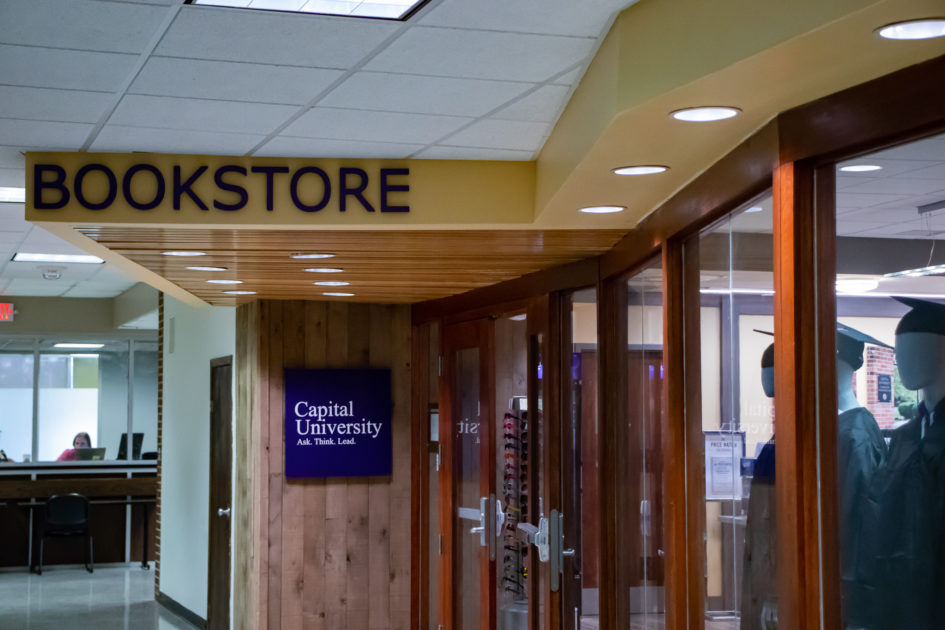College is hard, and who doesn’t love some good life hacks? From parking to dorm cooking to saving money on books, we’ve got you covered.
Saving on Books
The university bookstore will price match textbooks from websites including Amazon, Barnes & Noble’s website, and local competitors whether you’re renting or buying. They can’t, however, match digital textbooks and access codes, special orders, or resources from online marketplaces such as Amazon Marketplace. More information can be found here.
Hack submitted by @lightfoot.love on Instagram.

If buying textbooks through the bookstore isn’t your jam, though, you can always look to used textbook sites like Thriftbooks. Thriftbooks is an online marketplace that has roughly 13 million titles listed on their website. They sell new and used copies of books of all genres, whether they’re novels for fun or textbooks for school.
Hack submitted by @katilyn_r on Instagram.
Parking

Campus parking lots are notorious for being packed during the school day, and for commuters, that’s one of the biggest struggles of not living on campus. One of the easiest ways to get around the crazy stress is to arrive on campus with plenty of time before your class, especially on busy days like Mondays and Wednesdays. Students can also call Public Safety and they can help you find a spot in the lots they have cameras in, such as S1 and S2.
Free Online Resources
We’ve all had moments where it’s felt like all is lost on an assignment or test. No matter how much you study or read your textbook, it’s just not sticking.
Websites like Quizlet, for example, allow you to make digital flashcards and then will present them in different orders, in the form of a game, or even as a test.
Other websites, like Shmoop or Sparknotes, are especially helpful for literature classes because they’ll break down a text little by little to help you understand better. It should be noted that they are not replacements for doing your actual reading, but if you’re struggling with The Odyssey, for example, the people of Shmoop will help out (and they’ll even quiz you on it, if you want).
Another useful resource that’s used by a lot of student organizations on campus is Canva. Canva is a graphic design tool that’s loaded with templates, stock photos, and vector images to help you easily create the perfect document.
The university also has a directory–capital.edu/directory–to help students find contact for a faculty member that they’re looking for. Whether it’s a specific professor, department, or
Food Hacks
One of the most prominent (and maybe even accurate) stereotypes for college students is the constant consumption of ramen, because it’s cheap and it’s easy. There are ways to spice up your ramen, however, and make it more of a substantial meal, like by adding fresh vegetables, taking apart a rotisserie chicken from the grocery store, or adding egg or some other type of protein to the dish.
Hack submitted by @sienna_dawn6 on Instagram.
Other culinary ideas include using a Keurig or electric kettle to heat up water for things like oatmeal and soup mixes, making brownies or cupcakes in a mug, and investing in a microwave steamer for foods like vegetables.
Another useful resource on campus is the Cap Cupboard, which functions as a food pantry. Students who may be lacking funds can
On-Campus Study Spots
For commuters especially, it can be hard to find somewhere on campus to get some intense studying in.
We all know about the popular study areas, like the library, the fountains, and One Main Cafe, but some of the lesser areas may provide more privacy.
The Schumacher Gallery, located on the fourth floor of the library, provides a calming atmosphere perfect for studying. Other spots include the student lounge in Renner Hall, the outdoor classroom between Saylor-Ackermann and Troutman, and the various study spaces on the second floor of the CMC scattered between faculty offices.


